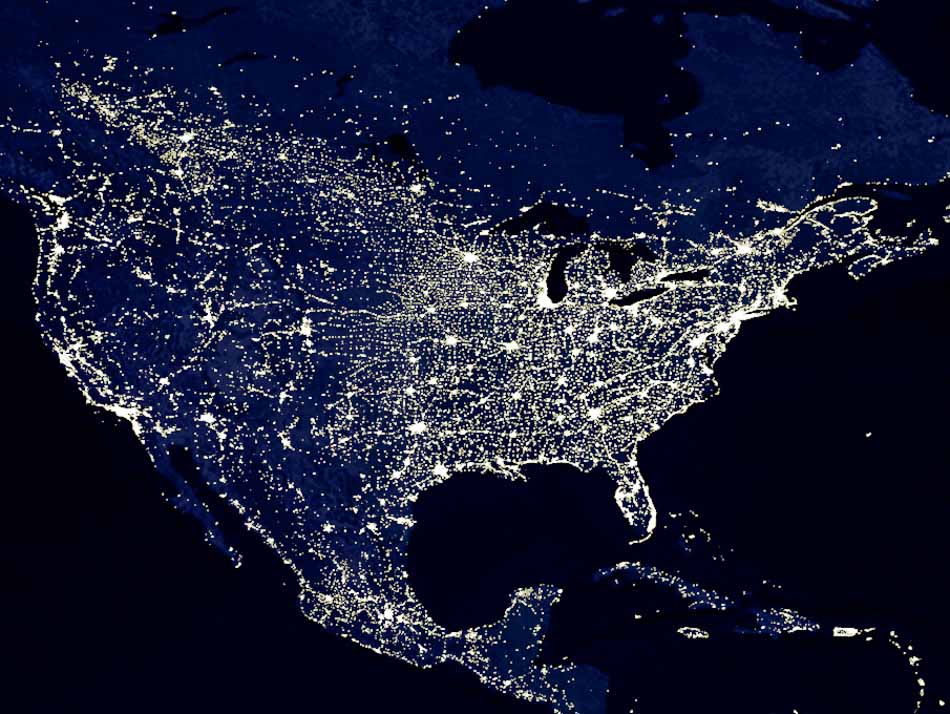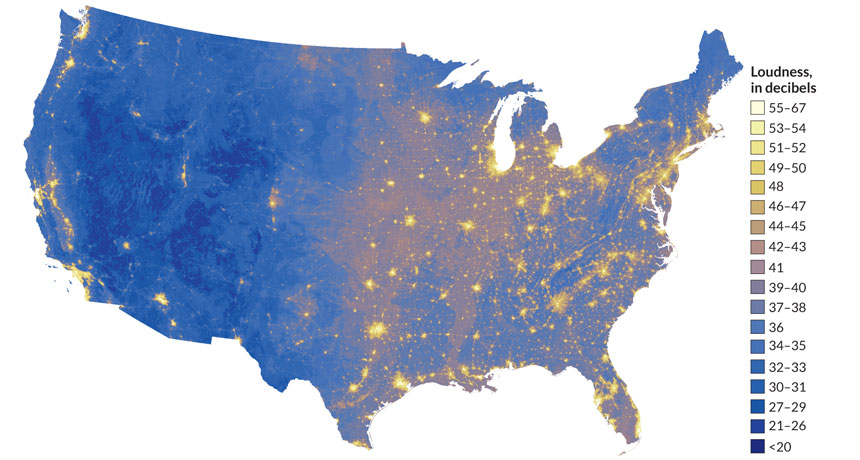Endangered Holiday Gifts
No, this isn’t a commentary about gifts made from the hides or other body parts of endangered animals, or decorations, culinary delicacies, or cure-alls made from endangered plants. It’s about giving yourself and your loved ones of all species two gifts—or maybe just a taste of two gifts—far more endangered than that. Can you guess what they are?
Some additional clues: December through mid-January people worldwide from diverse backgrounds will celebrate multiple holidays. As we have become a more global community traditions from one religion or group of people become incorporated into others to the enrichment of both. However two natural wonders that played a pivotal role in the early evolution and celebration of many holidays become rarer with each passing year. Were these plants or animals, we would call them endangered. But we do not, even though their loss greatly contributes to the loss of all who show up on the Endangered Species List as well as diminish the quality of our own lives. Nor do they appear on the list of World Heritage Sites or any one of several lists of natural wonders of the world.
Even so, for those who have experienced them, the holidays and indeed life itself would not be the same without them.
The first gift is a view of the night sky undiminished by artificial light. If a star shown in the east or an angel descended over many urban and suburban areas to herald a world-changing event, no one would see them. The First Atlas of the Artificial Night Sky Brightness estimated that two thirds of Americans and half those in Europe no longer can see the Milky Way. Theoretically if people never see something they won’t miss it, right? But what happens when they do? A clue to this came in 1994 when the Northridge Earthquake created a massive power outage in the Los Angeles area. Numerous residents who saw the Milky Way for the first time called the emergency line to report an alien presence. No doubt some of them were so terrified by the “large silver cloud” they grabbed their weapons. In our current media-fueled era of paranoia no doubt many more would grab their even higher-powered weapons and perhaps even start blasting away. This does not bode well for any celestial visits from angels or jolly old elves during the holidays!
Below is an image of the US night sky and its artificial lights taken from space, thanks to C. Mayhew and R. Simmon, NASA and the National Geophysical Data Center (now known as the National Centers for Environmental Information).

Imagine that artificial light gobbling up a view of the night sky with all its stars, planets, comets and other wonders at a rate of approximately 6% a year. Which is it. At the same time much of the existing artificial light as well as that of the invaders will become brighter as LEDs slowly but surely replace other artificial light sources. Simultaneously the higher replacement costs associated with this more energy-efficient light source will mean fewer funds for proper shielding to focus the light downward. That’s not a very bright prognosis overall. Still, pockets of night sky still can be found even in more populated areas by those willing to seek them out.
The first line of the traditional Christmas carol “Silent Night” takes us into the realm of the second endangered gift most of us can reclaim to some degree this holiday season: silence. Compare the preceding light map of the United States to this sound map created by the National Parks Service Natural Sounds and Night Skies Division:

One doesn’t need a degree in rocket science to a) notice that the areas with the most lights are also the noisiest, or b) surmise that this occurs because the two phenomena are human technology-dependent.
However, just as the absence of artificial light pollution in no way equals total darkness, the absence of human-made sounds in no way means total silence. Instead of vehicles, factories, shopping malls and other human activities, you hear the sound of nature: wind, rain, swaying and creaking plants and trees, leaves or snow falling, all kinds of animals communicating via barks, yips, growls, hisses, chirps and trills. And on a really quiet day or still night you can hear the beating of your own heart… Which for some reason really creeps some people out. But it shouldn’t because natural silence is the heartbeat of a living planet, and each of us is part of it.
More than 25 years ago Gorden Hempton realized that the sounds of human activities increasingly were drowning out the sounds of nature. As a result he began seeking out the quietest places and recording them, much as a biologist or botanist would record the songs and cries of an endangered species so some evidence of them would remain were they to vanish. By Hempton’s count, the number of places worldwide where one can go for 15 minutes without hearing a human-made sound is pitifully small and shrinking. But thanks to his pioneering work, there are many more interested in sound pollution and its negative effects of body and mind. Enough such people now exist that, as inevitably happens, it’s been made into a science. You can hear Hempton talking about his work here.
And if the holidays and life in general are stressing you, playing this play in the background will provide some natural r&r.
So many holiday traditions are tied up with visions of night skies filled with stars, so many stars the conscious mind freezes at the beauty of it all. Paradoxically this time of year also seems to bring out the worst in some people who literally seem hellbent on destroying everything that is good about those holidays. And sadder still on this planet increasingly invaded by human lights and sounds, there’s no shortage of media hoping to convince us that the message of madness and mayhem is the only message of the holiday season.
But it is not. To reclaim the real message this holiday season, I suggest you do what I do when the human world is too much with me. Find yourself a patch of night sky as far away from artificial light and the sounds of human activity as possible. Stand or sit there for a while and take it all in. Take your dog(s) with you. And if find yourself feeling impatient, bored, anxious, or–the worst–nothing while you’re out there then you, my friend, need these endangered gifts from the heavens and planet earth the most of all.
This year, reclaim the magic.
All of us here in the little house on the hill wish you and yours of all species a wonderful holiday season filled with starlit nights and naturally silent days and nights.

Endangered Holiday Gifts
No, this isn’t a commentary about gifts made from the hides or other body parts of endangered animals, or decorations, culinary delicacies, or cure-alls made from endangered plants. It’s about giving yourself and your loved ones of all species two gifts—or maybe just a taste of two gifts—far more endangered than that. Can you guess what they are?
Some additional clues: December through mid-January people worldwide from diverse backgrounds will celebrate multiple holidays. As we have become a more global community traditions from one religion or group of people become incorporated into others to the enrichment of both. However two natural wonders that played a pivotal role in the early evolution and celebration of many holidays become rarer with each passing year. Were these plants or animals, we would call them endangered. But we do not, even though their loss greatly contributes to the loss of all who show up on the Endangered Species List as well as diminish the quality of our own lives. Nor do they appear on the list of World Heritage Sites or any one of several lists of natural wonders of the world.
Even so, for those who have experienced them, the holidays and indeed life itself would not be the same without them.
The first gift is a view of the night sky undiminished by artificial light. If a star shown in the east or an angel descended over many urban and suburban areas to herald a world-changing event, no one would see them. The First Atlas of the Artificial Night Sky Brightness estimated that two thirds of Americans and half those in Europe no longer can see the Milky Way. Theoretically if people never see something they won’t miss it, right? But what happens when they do? A clue to this came in 1994 when the Northridge Earthquake created a massive power outage in the Los Angeles area. Numerous residents who saw the Milky Way for the first time called the emergency line to report an alien presence. No doubt some of them were so terrified by the “large silver cloud” they grabbed their weapons. In our current media-fueled era of paranoia no doubt many more would grab their even higher-powered weapons and perhaps even start blasting away. This does not bode well for any celestial visits from angels or jolly old elves during the holidays!
Below is an image of the US night sky and its artificial lights taken from space, thanks to C. Mayhew and R. Simmon, NASA and the National Geophysical Data Center (now known as the National Centers for Environmental Information).
Imagine that artificial light gobbling up a view of the night sky with all its stars, planets, comets and other wonders at a rate of approximately 6% a year. Which is it. At the same time much of the existing artificial light as well as that of the invaders will become brighter as LEDs slowly but surely replace other artificial light sources. Simultaneously the higher replacement costs associated with this more energy-efficient light source will mean fewer funds for proper shielding to focus the light downward. That’s not a very bright prognosis overall. Still, pockets of night sky still can be found even in more populated areas by those willing to seek them out.
The first line of the traditional Christmas carol “Silent Night” takes us into the realm of the second endangered gift most of us can reclaim to some degree this holiday season: silence. Compare the preceding light map of the United States to this sound map created by the National Parks Service Natural Sounds and Night Skies Division:
One doesn’t need a degree in rocket science to a) notice that the areas with the most lights are also the noisiest, or b) surmise that this occurs because the two phenomena are human technology-dependent.
However, just as the absence of artificial light pollution in no way equals total darkness, the absence of human-made sounds in no way means total silence. Instead of vehicles, factories, shopping malls and other human activities, you hear the sound of nature: wind, rain, swaying and creaking plants and trees, leaves or snow falling, all kinds of animals communicating via barks, yips, growls, hisses, chirps and trills. And on a really quiet day or still night you can hear the beating of your own heart… Which for some reason really creeps some people out. But it shouldn’t because natural silence is the heartbeat of a living planet, and each of us is part of it.
More than 25 years ago Gorden Hempton realized that the sounds of human activities increasingly were drowning out the sounds of nature. As a result he began seeking out the quietest places and recording them, much as a biologist or botanist would record the songs and cries of an endangered species so some evidence of them would remain were they to vanish. By Hempton’s count, the number of places worldwide where one can go for 15 minutes without hearing a human-made sound is pitifully small and shrinking. But thanks to his pioneering work, there are many more interested in sound pollution and its negative effects of body and mind. Enough such people now exist that, as inevitably happens, it’s been made into a science. You can hear Hempton talking about his work here.
And if the holidays and life in general are stressing you, playing this play in the background will provide some natural r&r.
So many holiday traditions are tied up with visions of night skies filled with stars, so many stars the conscious mind freezes at the beauty of it all. Paradoxically this time of year also seems to bring out the worst in some people who literally seem hellbent on destroying everything that is good about those holidays. And sadder still on this planet increasingly invaded by human lights and sounds, there’s no shortage of media hoping to convince us that the message of madness and mayhem is the only message of the holiday season.
But it is not. To reclaim the real message this holiday season, I suggest you do what I do when the human world is too much with me. Find yourself a patch of night sky as far away from artificial light and the sounds of human activity as possible. Stand or sit there for a while and take it all in. Take your dog(s) with you. And if find yourself feeling impatient, bored, anxious, or–the worst–nothing while you’re out there then you, my friend, need these endangered gifts from the heavens and planet earth the most of all.
This year, reclaim the magic.
All of us here in the little house on the hill wish you and yours of all species a wonderful holiday season filled with starlit nights and naturally silent days and nights.